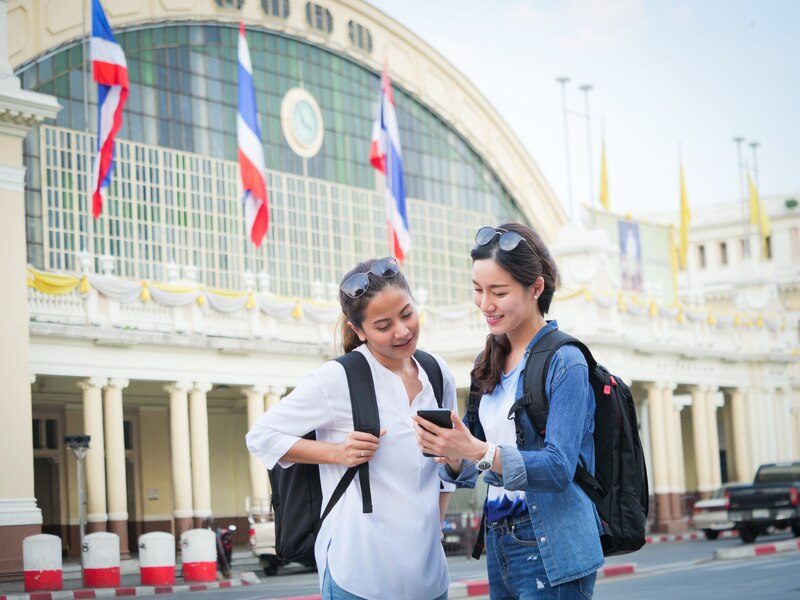Thailand is on the brink of a tourism revolution with its ambitious proposal to introduce a Schengen-style visa system for Southeast Asia. This innovative plan, spearheaded by Thai Prime Minister Srettha Thavisin, aims to simplify travel across Thailand and its neighboring countries—Cambodia, Laos, Malaysia, Myanmar, and Vietnam. The proposed visa system promises to make cross-border travel as seamless as Europe’s Schengen Area, a move that could significantly impact the region’s tourism landscape. Let’s delve into what this means for travelers and the tourism industry. Thailand New Schengen-Style
Transforming Southeast Asian Travel
The concept behind the new visa system is to create a unified travel experience similar to the Schengen Area in Europe. Currently, tourists visiting multiple Southeast Asian countries need to secure individual visas for each destination. Thailand’s proposal seeks to eliminate this hassle by offering a single visa that covers travel to several countries in the region. This change could revolutionize how travelers explore Southeast Asia, making multi-country trips more accessible and appealing. Thailand New Schengen-Style

In 2023, Thailand welcomed 28 million tourists, reflecting the success of policies aimed at easing travel restrictions. By adopting a unified visa system, Southeast Asia could further capitalize on this success. This initiative could attract more long-haul tourists from distant regions such as Europe and North America, potentially leading to a surge in tourist numbers and fostering stronger economic connections between the participating countries. Thailand New Schengen-Style
Economic Benefits and Opportunities for Thailand
Tourism plays a pivotal role in Thailand’s economy, contributing approximately 12% to its GDP and creating around 20% of the country’s jobs. The introduction of a Schengen-style visa could amplify these contributions by enhancing the region’s attractiveness to international visitors.
Thailand’s well-established tourism infrastructure, including its vibrant wellness sector, stands to benefit greatly. Wellness tourism—focused on relaxation, health, and rejuvenation—is an increasingly popular segment. With a simplified visa process, Thailand could become a hotspot for wellness travelers from far-off markets, boosting revenue and supporting local enterprises in the process.
Global Impact and Possible Hurdles
While the new visa system offers promising prospects for tourism and economic growth, it also raises important considerations. One potential issue is overtourism. An influx of tourists could put pressure on the region’s infrastructure and natural resources, potentially compromising the sustainability of tourism. Overtourism is a growing concern in many popular destinations where visitor numbers exceed local capacity.
Another challenge is the practical implementation of this unified visa system. Southeast Asia consists of countries with varying regulations and infrastructure levels, unlike the more integrated European context. The success of the Schengen Area in Europe is rooted in strong regional cooperation—a dynamic that Southeast Asia is still developing. Additionally, the visa system might prompt discussions on deeper regional integration, possibly affecting labor mobility, education, and residency across ASEAN countries.
What Travelers Should Know

Streamlined Travel:
The Schengen-style visa would allow tourists to travel effortlessly across multiple Southeast Asian countries with a single visa. This convenience could enhance travel experiences and encourage exploration of the region.
Enhanced Accessibility:
The initiative is expected to make Southeast Asia more attractive to long-haul tourists, particularly those interested in wellness tourism. Simplified visa procedures could lead to increased visitation from distant markets.
Risk of Overtourism:
As tourist numbers potentially rise, travelers should be aware of the possibility of crowded destinations, which could impact the quality of their travel experience. Responsible travel practices will be essential in managing these effects.
Minimal Impact on Indian Travelers
Interestingly, while the new visa system could greatly benefit many international tourists, its impact on Indian travelers is likely to be minimal. Indian citizens already enjoy a range of travel conveniences in these countries, including visa exemptions, visa-on-arrival options, and efficient e-visa processes. These existing arrangements offer Indian tourists a high level of flexibility and ease, making the new visa system less crucial for this group.
Indian travelers are accustomed to straightforward entry procedures into Thailand, Cambodia, Laos, Malaysia, Myanmar, and Vietnam. With user-friendly visa systems already in place, the introduction of a unified visa might not significantly alter the travel experience for Indian tourists.
A Potential Tourism Revolution for Southeast Asia
In conclusion, Thailand’s proposed Schengen-style visa system has the potential to be a transformative force for Southeast Asia’s tourism industry. By simplifying cross-border travel, this initiative could attract more international visitors and strengthen economic ties within the region. However, its success will depend on careful planning to address potential issues like overtourism and ensure that all participating countries can handle the increased tourist traffic.
For global travelers, this development promises to make exploring Southeast Asia easier and more convenient, opening up new and exciting opportunities for adventure and discovery.
Conclusion
Thailand’s proposed Schengen-style visa system for Southeast Asia represents a bold and transformative step in regional tourism. By introducing a unified visa that facilitates travel across Thailand, Cambodia, Laos, Malaysia, Myanmar, and Vietnam, this initiative aims to enhance the ease and appeal of exploring multiple countries in the region. The potential benefits are substantial, from boosting tourist numbers and strengthening economic ties to opening up new opportunities for wellness tourism.

This article is based on current developments regarding Thailand’s proposed visa system. Changes to policies, regulations, and implementation details may occur. Travelers should consult official sources for the most accurate and updated information before making any travel plans. TheVisaPoint.com is not responsible for any inaccuracies or changes that may impact travel arrangements.
Source: www.travelandtourworld.com
Get Free Expert Advice: Are you ready to embark on your next adventure? Whether you’re seeking a work permit, tourist visa, or study opportunities in Canada or other countries, we’re here to help! Contact us today to learn how our expert services can simplify your journey and turn your dreams into reality. Reach out now and let’s start planning your future together!
- Cheapest Cities in Europe for Tourists: Where to Enjoy a Budget-Friendly Vacation in 2024
- Extend Your European Adventure: Top Non-Schengen Destinations You Must Visit
- Study Abroad: Understanding the Cost of an MBA at Top UK and European Universities
Also read:
- UK Study Visa Approved Without IELTS – Even After a 5-Year Study Gap!
- 10 Most Budget-Friendly Countries for Indian Students to Study Abroad
- Discover the Best Time to Visit Canada: A Complete Guide for Your Dream Adventure
- Navigating Post-Study Work Opportunities & Tuition Fees: A New Era for International Students in the UK, US, Canada, and Europe
- Exciting News: Malaysia Extends Visa-Free Entry for Indian Nationals Until 2026!
 Need expert Advise ?
Need expert Advise ?
